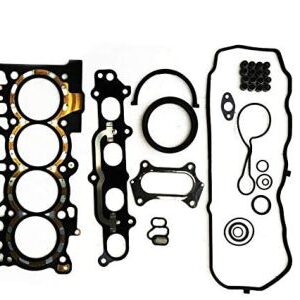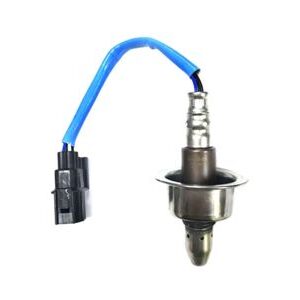Title: Unleashing Precision: The Role of Control Solenoid Valves in Automotive Performance
In the intricate world of automotive engineering, where precision and efficiency are paramount, control solenoid valves emerge as silent heroes, orchestrating the flow of fluids with unparalleled accuracy. Often hidden within the inner workings of transmissions and other vital systems, these unassuming components play a pivotal role in optimizing engine performance, fuel efficiency, and overall driving dynamics. In this blog, we’ll explore the significance of control solenoid valves, how they work, their types, and their indispensable contribution to the seamless operation of modern vehicles.
### Understanding Control Solenoid Valves
Control solenoid valves are electromechanical devices designed to control the flow of fluids, such as hydraulic fluid or coolant, within various automotive systems. They consist of a solenoid—a coil of wire wrapped around a magnetic core—and a valve body, which regulates the flow of fluid based on signals from the vehicle’s onboard computer.
### How Control Solenoid Valves Work
When an electrical current is applied to the solenoid, it generates a magnetic field that moves a plunger or armature within the valve body, allowing fluid to flow through or be blocked, depending on the valve’s design. By controlling the timing and duration of the electrical signal, the vehicle’s onboard computer can precisely regulate fluid flow to optimize system operation.
### Types of Control Solenoid Valves
1. **Transmission Control Solenoids**: Found within automatic transmissions, transmission control solenoids regulate hydraulic pressure to control gear shifts, torque converter lockup, and other transmission functions. They play a crucial role in ensuring smooth and precise gear changes, improving fuel efficiency and drivability.
2. **Engine Variable Valve Timing (VVT) Solenoids**: VVT solenoids control the flow of oil to adjust valve timing and lift in engines equipped with variable valve timing systems. By optimizing valve timing according to driving conditions, VVT solenoids improve engine performance, fuel efficiency, and emissions.
3. **Coolant Control Solenoid Valves**: Coolant control solenoid valves regulate the flow of coolant to control engine temperature and manage thermal conditions within the engine. They help prevent overheating and ensure optimal engine performance in various operating conditions.
### Importance of Control Solenoid Valves in Automotive Performance
1. **Optimized System Operation**: Control solenoid valves allow for precise control of fluid flow within automotive systems, optimizing performance, efficiency, and reliability.
2. **Enhanced Fuel Efficiency**: By optimizing transmission shifts, engine valve timing, and coolant flow, control solenoid valves help improve fuel efficiency and reduce emissions, contributing to a more sustainable driving experience.
3. **Improved Driving Dynamics**: Smooth and precise control of transmission shifts and engine performance enhances driving dynamics, providing a smoother, more responsive driving experience for vehicle occupants.
### Conclusion
In the complex ecosystem of automotive technology, control solenoid valves stand as pillars of precision, regulating fluid flow with unparalleled accuracy. From optimizing transmission shifts to fine-tuning engine performance and managing thermal conditions, these unassuming components play a vital role in shaping the driving experience. As automotive technology continues to evolve, the importance of control solenoid valves in achieving optimal performance and efficiency remains undeniably critical, ensuring that vehicles navigate the roads with precision, efficiency, and reliability.
Only 3 left in stock (can be backordered)
$18,926.31
Title: Unleashing Precision: The Role of Control Solenoid Valves in Automotive Performance
In the intricate world of automotive engineering, where precision and efficiency are paramount, control solenoid valves emerge as silent heroes, orchestrating the flow of fluids with unparalleled accuracy. Often hidden within the inner workings of transmissions and other vital systems, these unassuming components play a pivotal role in optimizing engine performance, fuel efficiency, and overall driving dynamics. In this blog, we’ll explore the significance of control solenoid valves, how they work, their types, and their indispensable contribution to the seamless operation of modern vehicles.
### Understanding Control Solenoid Valves
Control solenoid valves are electromechanical devices designed to control the flow of fluids, such as hydraulic fluid or coolant, within various automotive systems. They consist of a solenoid—a coil of wire wrapped around a magnetic core—and a valve body, which regulates the flow of fluid based on signals from the vehicle’s onboard computer.
### How Control Solenoid Valves Work
When an electrical current is applied to the solenoid, it generates a magnetic field that moves a plunger or armature within the valve body, allowing fluid to flow through or be blocked, depending on the valve’s design. By controlling the timing and duration of the electrical signal, the vehicle’s onboard computer can precisely regulate fluid flow to optimize system operation.
### Types of Control Solenoid Valves
1. **Transmission Control Solenoids**: Found within automatic transmissions, transmission control solenoids regulate hydraulic pressure to control gear shifts, torque converter lockup, and other transmission functions. They play a crucial role in ensuring smooth and precise gear changes, improving fuel efficiency and drivability.
2. **Engine Variable Valve Timing (VVT) Solenoids**: VVT solenoids control the flow of oil to adjust valve timing and lift in engines equipped with variable valve timing systems. By optimizing valve timing according to driving conditions, VVT solenoids improve engine performance, fuel efficiency, and emissions.
3. **Coolant Control Solenoid Valves**: Coolant control solenoid valves regulate the flow of coolant to control engine temperature and manage thermal conditions within the engine. They help prevent overheating and ensure optimal engine performance in various operating conditions.
### Importance of Control Solenoid Valves in Automotive Performance
1. **Optimized System Operation**: Control solenoid valves allow for precise control of fluid flow within automotive systems, optimizing performance, efficiency, and reliability.
2. **Enhanced Fuel Efficiency**: By optimizing transmission shifts, engine valve timing, and coolant flow, control solenoid valves help improve fuel efficiency and reduce emissions, contributing to a more sustainable driving experience.
3. **Improved Driving Dynamics**: Smooth and precise control of transmission shifts and engine performance enhances driving dynamics, providing a smoother, more responsive driving experience for vehicle occupants.
### Conclusion
In the complex ecosystem of automotive technology, control solenoid valves stand as pillars of precision, regulating fluid flow with unparalleled accuracy. From optimizing transmission shifts to fine-tuning engine performance and managing thermal conditions, these unassuming components play a vital role in shaping the driving experience. As automotive technology continues to evolve, the importance of control solenoid valves in achieving optimal performance and efficiency remains undeniably critical, ensuring that vehicles navigate the roads with precision, efficiency, and reliability.
| Warehouse | Inventory at warehouse 2 |
|---|


Get E-mail updates about our latest products and special offers.
Sensors and More is Jamaica’s ultimate online auto parts store. Established in 2020, we specialize in genuine electrical parts for Japanese, Read more…
Reviews
There are no reviews yet.